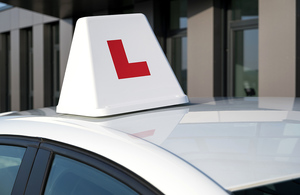UK Export Finance publishes its 2019-20 results and new Business Plan.
- Results show UKEF provided £4.4 billion in support for UK exports to 69 countries
- 77% of the companies UKEF directly supported were SMEs, 88% of which were based outside of London
- UKEF’s new Business Plan sets out how it will increase its support to UK exporters and suppliers
UK Export Finance (UKEF) has today published its results for 2019 to 2020, revealing it provided £4.4 billion in support for UK exports, helping UK companies trade with 69 countries.
UKEF supported 339 companies in 2019-20, up 29% on the previous year, with a sharp increase in companies in supply chains indirectly benefiting from UKEF support. 77% of the companies UKEF supported were SMEs, and 88% of these were based outside London as the department works with companies across the UK.
Businesses that benefited from UKEF support include Environmental Street furniture, a Belfast firm selling street furniture to the Dubai Arena, Tall Group, a printing company in Runcorn selling secure high school certificates to the Kenyan National Examination Council and IQA group, a Glasgow-based utilities contractor helping Angola improve its national power supply.
In the year the UK hosted the UK-Africa Investment Summit to strengthen trade ties with the continent, UKEF has seen significant growth in its support for UK exports to Africa. UKEF provided £780 million of support to facilitate UK exports to the continent, up from £625 million last year and rising from just £85 million five years ago. This included £110 million in financing for a new maternity hospital in Ghana that will help reduce infant mortality rates in the south of the country.
Secretary of State for International Trade, Liz Truss, said:
This has been another outstanding year for UK Export Finance, helping businesses in every part of the UK win export contracts.
Supporting international trade will be crucial as the UK looks to recover from the impact of the COVID-19 pandemic. UK Export Finance is already playing a critical role at the centre of the government’s plan to power an export-led recovery and its offer is more important than ever for UK exporters.
UKEF has today also launched its 2020 to 2024 Business Plan which sets out how the department will meet the challenges in providing export credit and trade finance support over the next four years, particularly as the UK recovers from the impact of COVID-19.
The Business Plan outlined new objectives that will allow UKEF to adapt its support for SMEs, help businesses across all the regions of the UK access UKEF products, and focus its activity on sectors and countries where UKEF support will have the greatest economic benefit. This includes plans to further develop its support for clean growth and renewable energy business by building on the £2 billion recently allocated to UKEF’s direct lending facility for clean growth projects.
Marcus Dolman, Co-Chairman of the British Exporters’ Association (BExA) welcomed the results and said:
BExA welcomes the positive figures announced by UKEF today, which show a marked increase in business volumes compared with previous years and we commend UKEF for their continued support of UK exporters.
UKEF is a critical resource for UK exporters and their importance will be amplified this year in supporting businesses through the current crisis. We praise their enthusiasm and ingenuity in developing new products and services. We particularly look forward to the new schemes that are under development being made available to all exporters imminently and see this as a real game changer in the support of UK exports.
Notes to editors: UKEF 2019 to 2020 highlights
-
UKEF’s support is provided on a commercial basis in partnership with over 100 private sector providers and the department charges a premium to cover its costs and the risk it takes on. In 2019-20, UKEF generated more than £177 million in premium income for the Exchequer.
-
This year UKEF supported its first ever offshore-wind projects in 2019-2020, enabling British companies to win contracts on the Formosa 2, Changfang and Xidao wind farms in the Taiwan Strait with more than £300 million of support.
-
UKEF support in 2019-2020 extended to Jaguar Land Rover, one of the country’s major exporters. UKEF guaranteed a £500 million loan to support the company’s continued investment into research and development of its electric vehicles – the first deal for UKEF of this kind, with UKEF’s support tied to Jaguar Land Rover’s overall working capital needs instead of a specific export contract.
Read our 2019 to 2020 Performance Highlights and the Annual Report and Accounts.
Find out more about our 2020 to 2024 Business Plan.

